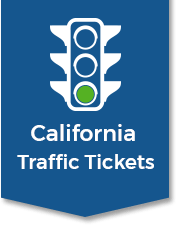
In the past few years, the political climate surrounding routine police stops, and police interactions have come under scrutiny. Though there are many arguments from all sides of the political spectrum, we want to avoid that kind of charged discussion. Instead, we want to do what we do best and talk about how to handle traffic stops in California.
Traffic stops in California are much like traffic stops anywhere else in the United States, though slightly different based on California law. Knowing your rights, your responsibilities, and following the right procedures will save you time, money, and prevent a simple ticket from becoming a much more serious charge?
Why Handle Traffic Stops Politely?
Getting pulled over for speeding, running stop sign, or for no apparent reason can be frustrating. However, remember that ACTING RUDE WILL ONLY MAKE IT WORSE.
Be as polite as possible. If the traffic officer has not decided to ticket you, a polite demeanor may result in nothing but a warning. If the officer has decided to give you traffic ticket, then a polite demeanor will ensure it does not escalate further. Afterwards, you can contest your ticket the right way, through a California traffic ticket lawyer.
Rights & Responsibilities
The most important thing to remember during traffic stops is that you have rights and responsibilities which govern the interaction with traffic police. Both are important and go hand in hand. As important as it is to know your rights when dealing with traffic police in California, it is just as important to know your responsibilities.
Rights
- The right to remain silent (use this right!)
- The right to question the stop (when appropriate, ask the officer if you are free to go)
- The right to understand why you are detained (if you are not free to go, ask why you are being detained)
- You are not required to consent to a search.
Responsibilities
- You are responsible for your conduct, your actions, and your words.
- Do not exit the vehicle.
- Do not use hostile language or tones.
- If you are driving and pulled over, you must show your ID, registration, and proof of insurance.
- If you are a passenger who has been arrest or booked, you must show your ID.
Remember That the Police Are Doing Their Job
Remember, during all your traffic stops in California, the police are doing their job. This goes both ways.
- Remember to respect the fact that they are just doing their job. They are working with irate and dangerous people, as well as ordinary people all day long. It can be demanding on them too.
- Remember that their job is to gather as much information as possible to ensure you have to pay your traffic ticket. They are legally allowed to lie to ensure they can get all the information they need.
Treat the police respectfully but remember to stay vigilant and exercise your right to remain silent.
What to Do
- Provide your license, registration, and proof of insurance.
- Keep your hands on the wheel unless directed otherwise.
- Speak slowly and clearly.
- Exercise your right to remain silent.
- Act politely.
- If you are arrested, ask the officer if you can park your car in a safe place, this will help you avoid towing.
What NOT to Do
- Do not exit the car.
- Do not use hostile language or tones. Avoid acting disrespectfully.
- Do not refuse to sign the ticket, this could lead to an arrest.
What Happens If You Get a Traffic Ticket
Sign the ticket and move on calmly. When you have a chance to use your phone, call a California traffic ticket attorney to discuss fighting the ticket. All California tickets can be fought with a two-point system and there are lots of factors that could lead to getting your ticket dismissed. Let the professionals handle it for you!
The Right to Remain Silent
This is a great video resource illustrating your right to remain silent when talking to police officers in any situation.
